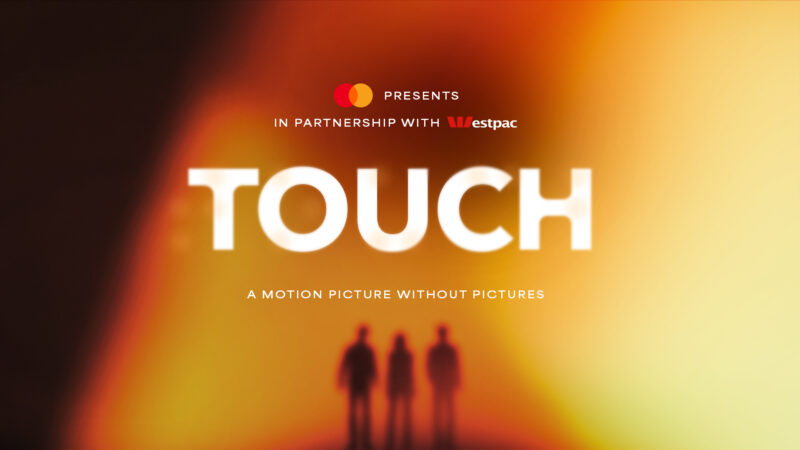Mastercard and Westpac launch inclusive box-office experience for blind and low-vision customers
Mastercard has partnered with Westpac to launch Australia’s first pictureless feature-length film, using only sound to create a box-office experience fully inclusive to blind and low-sighted customers.
The film, set to premiere at Westpac OpenAir on 13 February, celebrates Mastercard’s Touch Card features – a design systems of tactile notches launched last year to help card holders who are blind or low-sighted to identify and different their different cards.



So the idea is…radio?